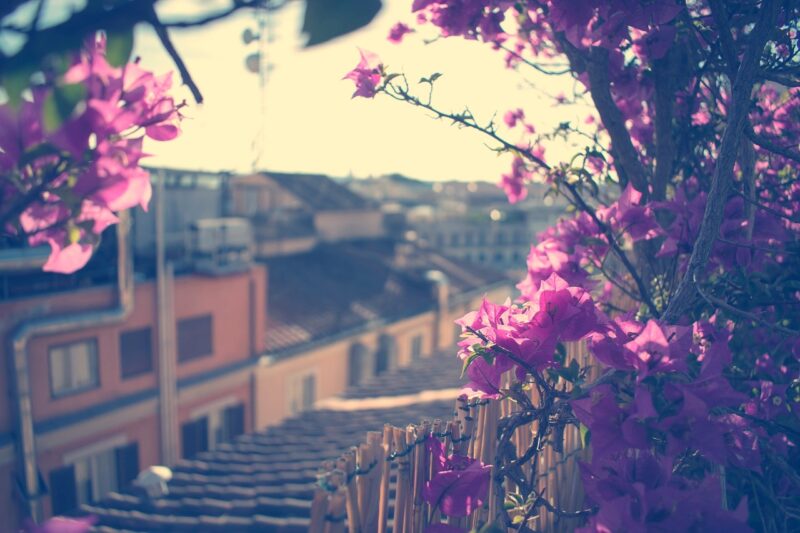“… some flowers on earth, and all the stars in the sky.”
― Victor Hugo, Les Misérables, Book I, p. 41
On the second floor of a Georgian villa, on the British Channel Island of Guernsey, in the bedroom, behind the oak bed, is a red curtain. Hidden behind it, a secret passage: a short staircase. At its end, on the top floor, four glass walls and a glass roof:
A secret garden.
Well, not quite: a conservatory in which Victor Hugo spent fourteen years in exile. With a standing desk, Spartan bed, a view of the islands of Sark and Herm, clouds, sky, France beyond them. He wrote La Légende des Siècles, L’Homme qui Rit, Les Travailleurs de la Mer, and completed Les Misérables, in which he wished for
“A little garden in which to walk, and immensity in which to dream. At one’s feet that which can be cultivated and plucked; overhead that which one can study and meditate upon: some flowers on earth, and all the stars in the sky.”
― Les Misérables, Book I, p. 41
On the top floor of a building in Boston, five time zones and nearly two centuries later, I too was searching for such a place. Somewhere to write. Somewhere to read, and think, and be. I found it:
Four glass walls and a glass roof. And an actual garden.
Closer to sky than ground; the busy city and busy people below going about their busy lives seemed so quiet and small. A few red breasted robins and bluebirds. A small reflecting pool. Grass, on a roof. Daisies, violets, other wildflowers, impromptu. Granite benches, teak chairs in niches under slim, shading trees. Just beyond the edge, a panoramic view of Boston, the river, Cambridge.
A place to watch the sun set, or rise, the mist come in, the rain trickle down the glass, blurring the city; infinite little light splashes. Spread a red plaid blanket, have a picnic. Listen to jazz – Jill Barber -, wearing a summer dress – white, with Capri lemons – in the middle of November.
Fantasize about sailing a boat, watching the sailboats. Tea. Wine as the hours progress, red. Something velvety. A book of poetry, for inspiration. Szymborska, or Hugo himself. Then paper, a pen. Not fancy, just a yellow pen. It is a very good pen.
Emperor Nebuchadnezzar II built a garden on a roof, six hundred years B.C.E., in Babylon. The most wondrous hanging garden. Centuries later, during the Renaissance, the man who would become Pope Pius built one on his rooftop in Pienza. Gardens on the roofs of Pompeii, Fustat, Tenochtitlan, Moscow, New York City…
“the sun by day and the stars of heaven by night.”
– Walt Whitman, Specimen Days
“What more was needed?” What more could be? I wish I could tell Hugo that I found his garden, tinted peach by the light, in Boston, on a top floor.
